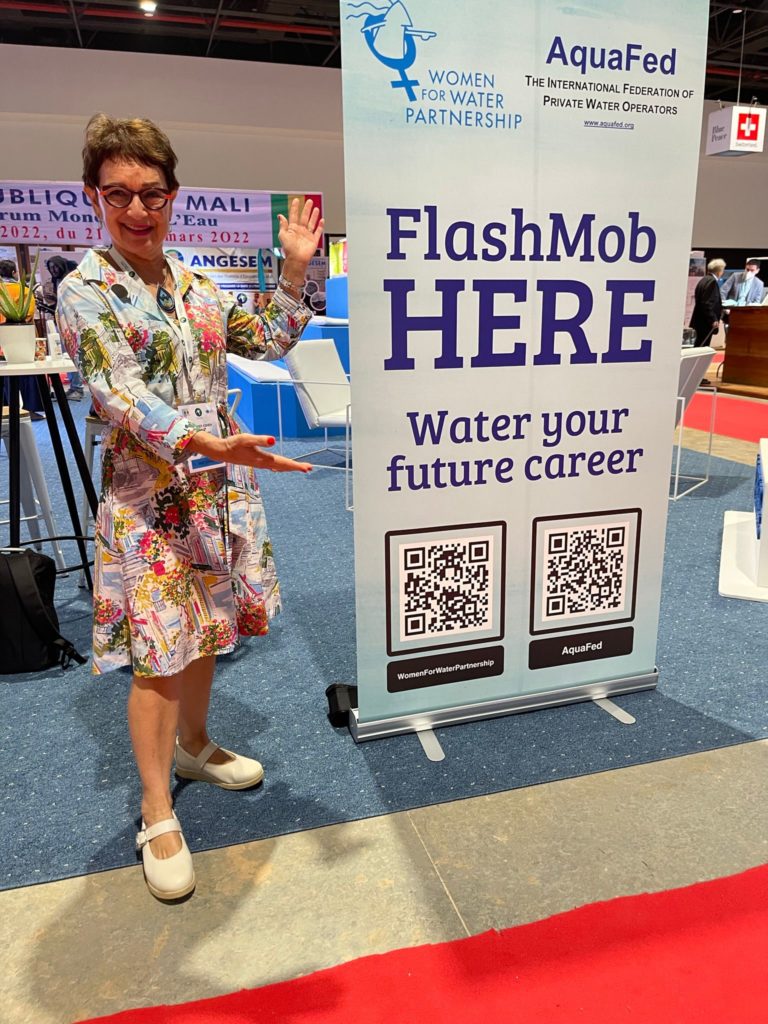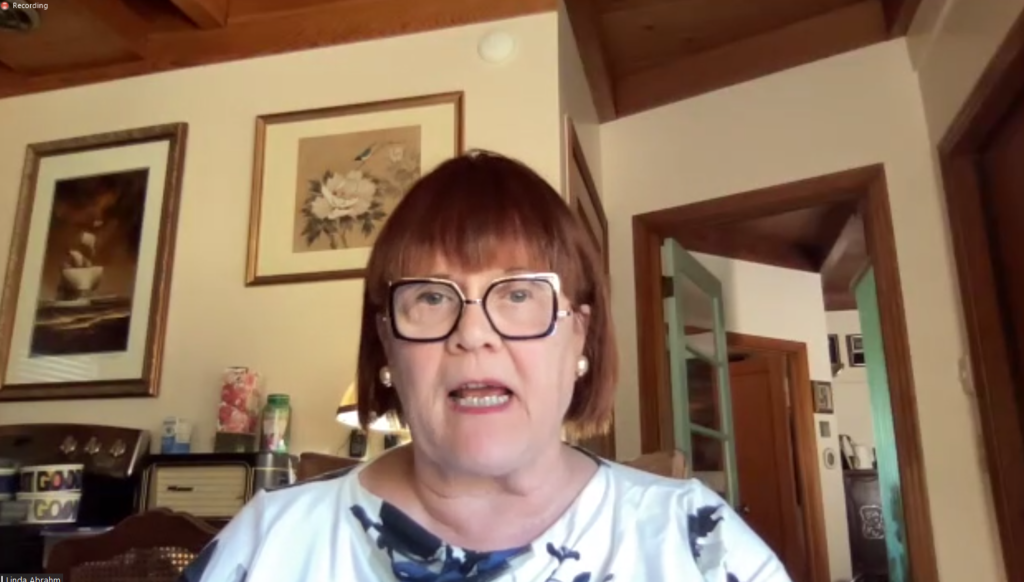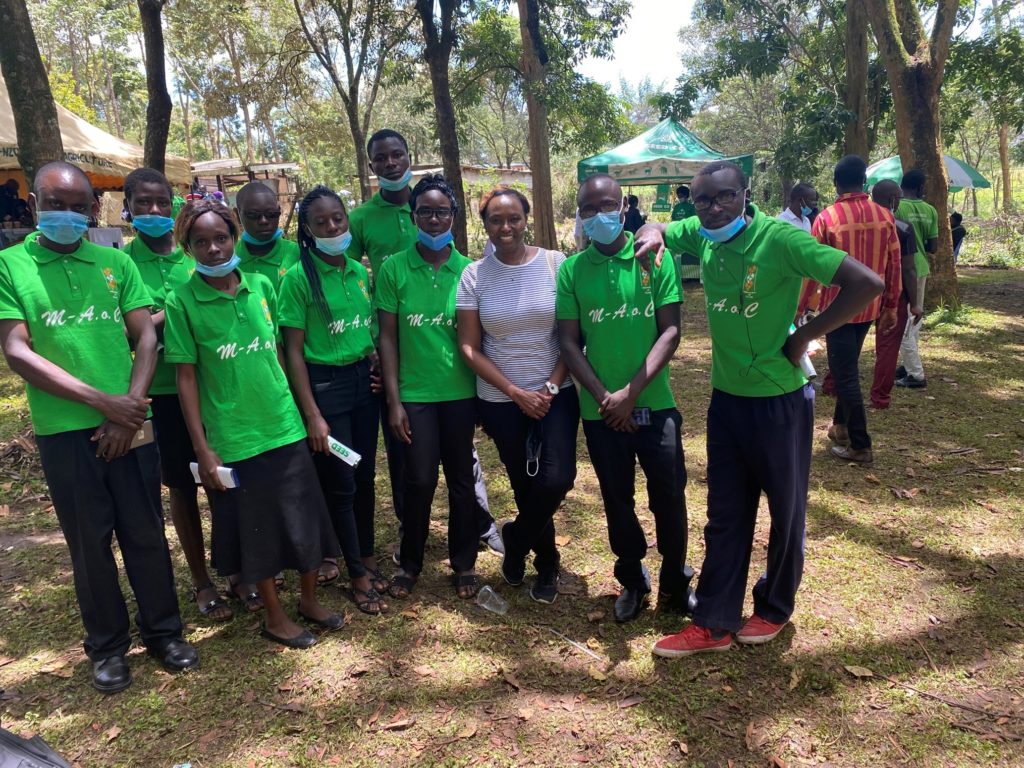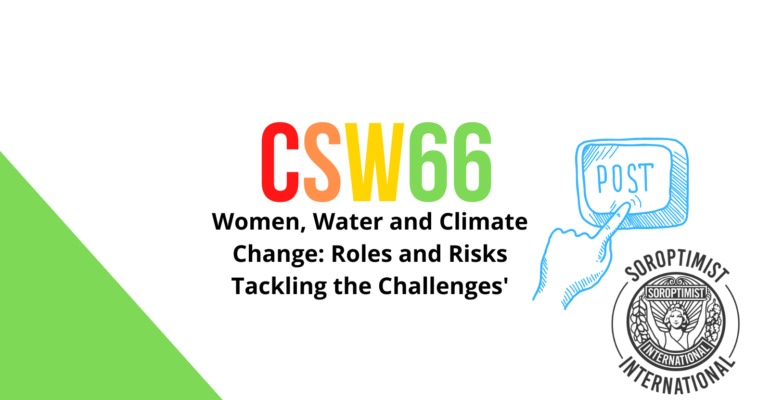Hannah Agius, SI Advocacy Coordinator, blogs from the CSW66 parallel event, ‘Women, Water and Climate Change: Roles and Risks Tackling the Challenges’, organised by Soroptimist International and Women for Water Partnership.
“Held on World Water Day, this fantastic event saw speakers highlight the importance of enabling and empowering women to contribute to effective climate action and demonstrated the necessity of integrating gender-responsive approaches to climate change, environmental and disaster risk reduction policies and programmes.
Watching the presentations, it became clear that water is inextricably linked with climate change and environmental disaster. Floods, drought, coastal erosion, rising sea levels, wildfires, all relate to water. Furthermore, water is an essential component to disaster recovery efforts. The speakers’ presentations emphasised that the world’s mitigation and resilience to climate change is dependent on good water management.

First to speak, Mariet Verhoef Cohen, Past SI President and President of the Women for Water Partnership, declared that “the world faces a severe and immediate crisis with water, making the achievement of the Sustainable Development Goals increasingly challenging”. Mariet explained that governance and financing play a crucial role in policy and programme implementation. “Weak governance has plagued the water section for too long and has held back development of services and access to desperately needed finances. WASH services and water resources must be managed with integrity, equity, transparency and involving all people and stakeholders.” Click HERE to read Mariet’s speech in full.

Mariet Verhoef Cohen at the World Water Forum 2022
Several of the speakers spoke about the critical need for stronger political will and renewed commitment to multilateral action. Excepting the Convention on Transboundary Water (ratified by only 30% of States), there is no binding international policy on water management and no intergovernmental body where states can exchange on the corrective actions that are required.
Professor Barbara Pozzo recognised that despite women being most vulnerable to the effects of climate change, women also have a critical role as change-makers. Barbara identified women’s restricted access to land ownership as a key barrier to participation in environmental decision making; stating that despite the UN, World Bank and International Monetary Fund’s encouragement of reforms in land ownership and access to property, reforms fail to displace societal traditions.

SI Advocacy Advisor, Linda Witong, speaking at the Women, Water, Climate Change event.
Drawing from her research on the UN Assembly’s climate action from the 1940’s until the current date, Linda Witong gave a rousing speech on the lack of progress made on climate action. Linda drew comparison between key asks from the 1950’s and the cureent day, highlighting that very little had changed. Since the 1950s there have been at least eight UN committee treaties and twenty international instruments, principles, guidelines and recommendations, that have dealt with women’s land rights, access to credit and inheritance, and women’s equal participation in decision making in land management and access to water. This doesn’t include the myriad of UN resolutions that have focused on these issues since the formation of the UN. And yet little progress has been made; women represent 43% of the world’s agricultural workforce but only 15% of landowners, 50% of food producers but represent 7o% of world hunger.
“Despite the heroic efforts of all of the advocates, we are met with soaring rhetoric but very little implementation”. – Linda Witong, SI Advocacy Advisor.

Mary Muia, SI UN Representative, and the Mazingira (Environment) Ambassadors of Change.
SI Director of Advocacy, Leigh Ellwood-Brown, explained that no woman or girl is immune to the effects of climate change and environmental disaster and so we must provide training and education programmes that empower women and girls to make informed decisions when adapting to life in a changing environment.
Presentations were given by Mary Muia and Rose Mwangi on leading projects that engaged women and girls in climate, environmental and disaster risk reduction. Mary explained the importance of engaging youth, particularly through youth networks. “Youth are a diverse, resilient, and multifaceted group and should be handled as so even in climate change mitigation […] Only with the inclusion of youth, among many other supportive actions, will a transition to an inclusive, resilient, and sustainable world be possible. This is imperative for the most vulnerable and at-risk people”. In reference to the Mwihoko Women Group Water Project, Rose emphasised the importance of women’s autonomy and leadership within programme design and implementation, explaining that when women direct projects within their communities, these projects are more likely to succeed, expand, and have long term sustainability.
For more information about where Soroptimist International stands on climate change, read our position paper HERE.”
WATCH THE FULL SESSION HERE

